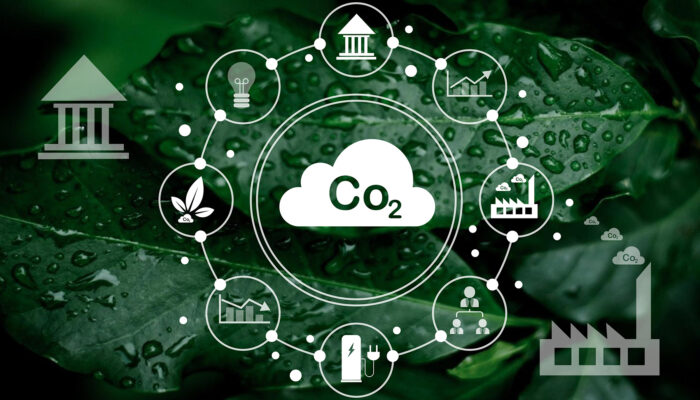Sounds antonymous but the Gulf States (Saudi Arabia, UAE, Qatar, Kuwait, Bahrain and Oman) are well positioned to seize the opportunity within climate tech thanks to their growing oil revenues and serious diversification visions. They are the home to four of the ten largest Sovereign Funds in the world which have become increasingly active in private markets, participating in high-profile transactions to help position the Gulf States as a premier investment and commercial hub.
Looking to diversify away from oil revenues, climate tech is a natural investment target. Climate tech investments attracted over $50bn in 2022 and recent COP hosts (UK and Egypt) estimate that the sector needs $1tn of investments to meet our climate goals. The sector is diversifying beyond energy and mobility to include areas such as industrial tech (hydrogen), agri-food, and built environment.
By embracing climate tech, Gulf States can build specialised hubs, align with strategic goals such as food security and logistics, and position themselves as key players in the global energy transition. It also will also offer them an opportunity to create future jobs for their young populations.
Leveraging climate investments to create innovation hubs
Similar to the rise of tech investments that gave birth to innovation hubs like Silicon Valley and London, climate tech investments are also fostering the development of new centres of innovation, with Europe taking the lead. The UK is emerging as a leader in the wind energy sector, with an impressive pipeline of off-shore projects rapidly approaching the 100 GW mark.[1][2] Meanwhile, Nordic countries are also establishing themselves as significant players in the climate tech space, with numerous innovative companies in the region.[3] Sweden and Denmark are home to some of the largest and most promising climate tech businesses; Northvolt out of Sweden raised $1.1b in 2022 to finance its expansion of battery cell and cathode material production.
Gulf States Sovereign Funds can establish innovation hubs centred around emerging climate tech themes, leveraging their central location, large ports, and extensive land reserves. Themes such as built environment, industrial material, and food & agri-tech provide them with excellent opportunities to shape the future.
Gulf States Sovereign Funds are unique in their ability to work with its own governments to help shape policies that support technologies. Most climate tech investments requires not only capital but regulatory approvals and uses cases to trial out their products.
Large land banks and local workforces are ideal for climate tech investment
Investment into climate tech companies is usually more complex and requires higher capital intensity as most of these investments involve infrastructure elements like solar panels and robotics. Gulf Sovereign Funds are well-suited to tackle such complexity due to their long investment horizons and access to significant capital.[4]
Gulf States, with their vast land reserves, can provide the necessary space for setting up factories and infrastructure to facilitate climate tech companies. NEOM is a prime example, a $500bn economic zone by Saudi Arabia’s PIF that will empower more than 14 sectors in the Kingdom. The ultimate vision for NEOM is to be fully self-sustainable city providing an opportunity for PIF climate tech investees to implement and showcase their use cases.
Novel food proteins is one sector where emerging companies are taking the advantage of the vast land resources. Calysseo, a joint venture between Calysta and Adisseo, aims to build a 100,000-tonne feed protein plant in Saudi Arabia, leveraging the country’s strategic location, abundant land, and resources. In Qatar, Unibio, a leading sustainable protein company, has partnered with Gulf Biotech, an industrial biotech investor based in Doha, to construct the first single-cell protein plant in the country.
Gulf States have also long experience in shaping and influencing the global energy markets providing them with a unique insight into how the Sovereign Funds can utilise new energy whether its wind or solar panels. In addition, they have extensive experience in producing and exporting Liquified Natural Gas (LNG) which has a lot of parallels with one of the hottest trends in industrial tech – hydrogen.
Sovereign Funds can play the role of an anchor by investing in emerging technologies and creating collaboration paths with local companies. Desert Technologies, a company based in Saudi Arabia, is currently building solar panels and supplying to 22 countries today. Sovereign Funds can bring more novel technologies to empower local companies. An example of this is the investment in Lucid Motors. In early 2022, Lucid Motors announced plans for a full production factory at King Abdullah Economic City (KAEC) in Saudi Arabia. The facility has a 155,000 vehicles capacity annually.[5]
Climate tech investment offers diverse returns
Within the investor community, there’s a growing consensus that the next billion-dollar idea will come from climate tech. Government funding, regulatory changes and growing public pressure have created the perfect dynamics for the sector to thrive and that’s got investors rightfully excited.[6]
Last year, energy transition investments surpassed $1.1tn, equalling upstream oil and gas investments and fossil fuel-based power generation for the first time ever. Investment in the sector has increased by over 30% year-on-year reaching just under $80bn in 2022.[7] According to Bloomberg New Energy Finance, investments in the energy transition will require around $173tn over the next 30 years.[8] This presents a significant opportunity for Gulf States Sovereign Funds to invest in the sector and benefit from the vast potential returns. Climate tech is a natural diversification away from fossil fuels and investing in it provides a natural hedge against declining revenues from fossil fuels.
Sovereign Funds can perceive investing into climate tech for purely return purposes in that regard and its diversification potential. They should focus on companies where there is a vast market potential and a solid business model that is commercially driven. The Funds are moving in this direction as QIA has recently invested $2.5b to acquire 10% of RWE, a German utility, to help it acquire a solar business in America. However, there is a larger opportunity to grab here.
The time for Gulf States Sovereign Funds to invest in climate tech is now
Gulf States are at risk of being severely impacted by climate change. The adverse effects of climate change can already be observed across the region in the form of desertification, biodiversity loss, water scarcity, and sea level rise. [9] They have not been passive in the face of these threats and have taken significant steps towards mitigating climate change by implementing a roadmap to achieve net-zero emissions and investing billions of dollars in developing renewable energy.[10]
While this is admirable progress, more must be done to shift to a cleaner economy and ensure a sustainable future for the region. Sovereign Funds can play a leading role in supporting this transition by investing in climate tech.
SWF investment in climate tech will help sustain the shift away from the Gulf States traditional source of income (oil and gas) as countries worldwide transition to cleaner energy sources. It will also create new opportunities for their countries to thrive.
With the upcoming COP 28 in the UAE, there is a unique opportunity for Gulf States to showcase the leading role they can take in a greener world that is less reliant on fossil fuels.
Learn more about us.










